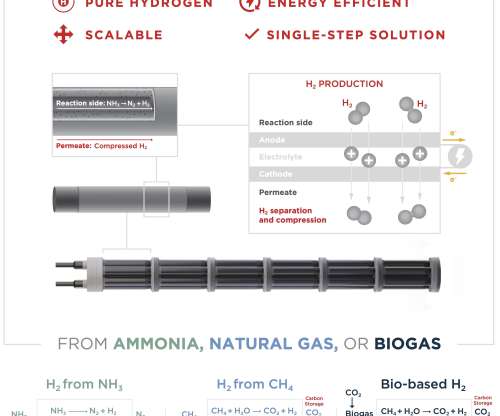New molybdenum-coated catalyst produces hydrogen from water-splitting more efficiently; preventing the back reaction
Green Car Congress
MAY 7, 2017
Water-splitting systems require a very efficient catalyst to speed up the chemical reaction that splits water into hydrogen and oxygen, while preventing the two gases from recombining back into water. The work was supported by King Abdullah University of Science and Technology. —Garcia-Esparza et al.

















Let's personalize your content